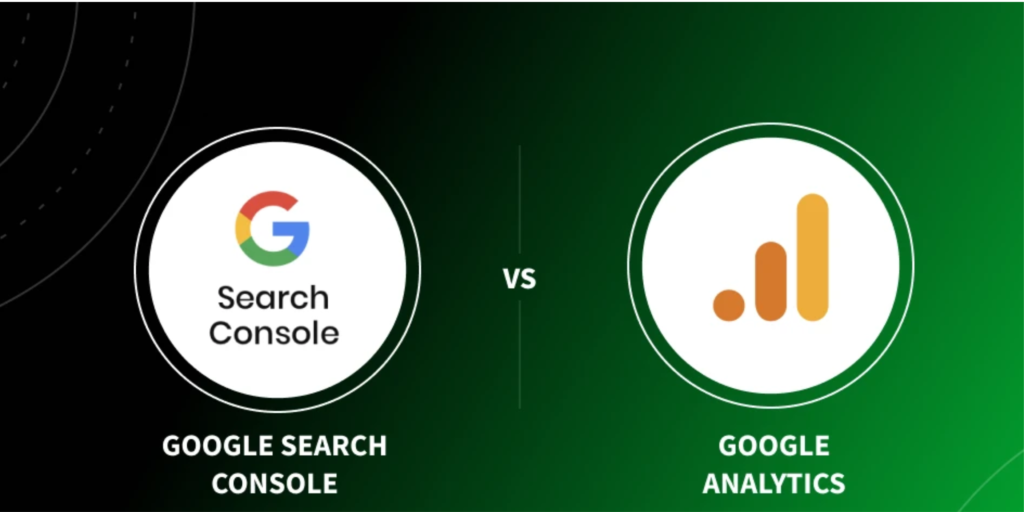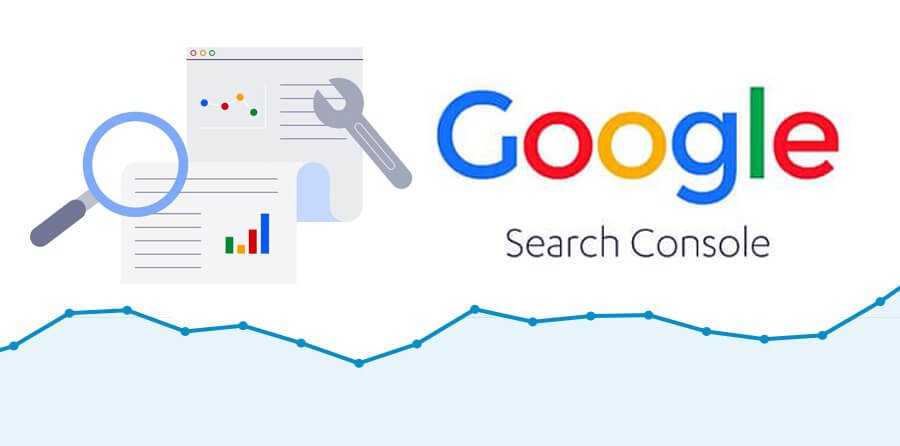Google is crucial to your company’s online marketing performance. There’s no getting around it in today’s world: Google is one of the primary locations people find and visit your website, and it pays to optimize all of your marketing to rank high in search results.
Because Google is so vital to your marketing, it’s only natural that it’s released several tools throughout the years to help you manage that marketing. Google Search Console and Google Analytics, both of which you may be familiar with, are two of these tools.
However, if you are familiar with both platforms, you may be asking what the parallels and differences are. Which one should you pick if you have to choose between Google Search Console and Google Analytics? Furthermore, what distinguishes the two instruments in the first place?
The short explanation is that Analytics is concerned with web design, whereas Search Console is concerned with search exposure. Continue reading to gain a more detailed view of how the two compare. Then sign up for Revenue Weekly, our email newsletter, for more digital marketing advice!
What is the difference between Google Search Console and Google Analytics?

To begin our comparison of Google Search Console vs. Google Analytics, let’s define each platform quickly.
What is Google Search Console?

Google Search Console (GSC) is a Google service that allows you to view metrics and do analytics on website exposure. That is, it lets you examine information about how your site appears in search results and assists you in resolving any issues you discover.
GSC is a free service, therefore there is no need to subscribe or pay anything. To use GSC, you must first verify your ownership of your website.
What is Google Analytics?

Google Analytics is a free web analytics service provided by Google, similar to Google Search Console. It allows you to monitor analytics about user activity on your website, allowing you to see how visitors engage with various pages. Analytics, in particular, is excellent for keeping track of traffic.
Analytics, as the name implies, assists you in analyzing the data it collects. It provides its findings in various charts and graphs to make everything easier to see and obtain important insights.
What marketing techniques are Analytics and GSC useful for?
Search Console and Analytics both assist you in conducting website analytics, however, they do not focus on the same marketing plan. Let’s go over the strategies that each instrument excels in briefly.
The Google Search Console
Google Search Console is concerned with search engine optimization (SEO). It is primarily concerned with how your site performs in Google search results: how high it ranks, how many clicks it receives, and so on.
GSC does not spend much time monitoring what happens on your website. All of its measurements focus on search engine results pages (SERPs) visibility and how users engage with it there.
Google Analytics
Google Analytics can also be used to examine SEO. It is, however, arguably more concerned with web design.
Finally, Analytics is all about what’s going on with your website. On the one hand, this entails determining how much traffic you receive, including from Google – which is related to SEO.
However, it also entails investigating how visitors react to the layout of your sites and engage with internal links. This type of data is more closely related to web design, taking Analytics on a different path than Search Console.
What metrics are tracked by Search Console and Analytics?
Both Search Console and Analytics track metrics connected to your website. But which indicators does each platform prioritize?
Each tool considers a variety of parameters, but we’ll highlight some of the most essential ones below.
Google Search Console
As stated above, GSC focuses primarily on SEO metrics. That includes:
- Impressions: The number of people who see your site in search results.
- Clicks: How many people click on your site when they search for it?
- Mobile-friendliness: How mobile-friendly is your site?
- Keywords: Which keywords does your site rank for?
- Rankings: The position of your website pages in search results.
Google Analytics
Google Analytics lets you track a variety of parameters. Some of them, like GSC, are about SEO, but others are about web design. Here are a few examples:
- Number of visitors: How many people visit your website
- Time spent on site: How long people stay on your site
- Bounce rate: How many people leave your site soon after arriving
- Demographics: A breakdown of what demographics most commonly visit your site
- Conversion rate: How many site visitors end up converting
Again, these are just a few of the metrics available in Google Analytics. However, the other metrics you might watch are also concerned with visitor activity on your website.
Which tool should you use: Search Console or Analytics?
To conclude our study of Search Console vs. Analytics, let us return to one of our previous questions: which platform should you use?
The answer is simple: both. This isn’t an either/or situation; the two tools cover very separate topics, and because they’re both free, there’s no reason to include them both in your budget. There’s no reason not to use both tools.
Even better, you may connect the two tools using your Google account. This allows them to communicate with one another and share valuable information, making them both more useful to you.
To summarise, you should use Google Search Console to support your SEO efforts and Google Analytics to improve your web design.




0 Comments